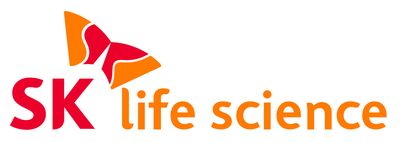SK Life Science, Inc. today announced the schedule for two oral and six poster presentations at the American Academy of Neurology (AAN) Annual Meeting taking place April 13–18, 2024, virtually and in-person in Denver, Colorado.
|
PARAMUS, N.J., April 9, 2024 /PRNewswire/ -- SK Life Science, Inc., a U.S. pharmaceutical company in pursuit of developing treatments that will change the future of central nervous system (CNS) disorders, today announced the schedule for two oral and six poster presentations at the American Academy of Neurology (AAN) Annual Meeting taking place April 13–18, 2024, virtually and in-person in Denver, Colorado. The data includes a study examining the relative bioavailability of cenobamate as an intact or crushed tablet administered either orally or via nasogastric tube, and a retrospective claims-based analysis comparing the effectiveness of cenobamate in reducing hospitalizations among patients with focal-onset seizures. "We are looking forward to sharing data on the use and administration of XCOPRI in adults with partial-onset (focal) seizures at this year's AAN meeting," said Louis Ferrari, RPh, MBA, vice president, Medical Affairs. "At SK Life Science we are continually conducting research that will help healthcare professionals and equip them with the information they need to care for patients living with the challenges of epilepsy. We continue to do this via ongoing research, relevant post-hoc analyses, and the publication of real-world data on the use of cenobamate in the U.S. and globally." Abstracts are available online on the AAN meeting website here and on site at booth #1262. The schedule of oral and poster presentations is detailed below. Oral Presentations Title: Comparative Effectiveness of Cenobamate in Reducing Hospitalizations in Patients with Focal-Onset Seizures: A Retrospective Claims-Based Analysis (Urban et al) Title: Relative Bioavailability of Cenobamate 200 mg Administered as a Crushed Tablet, Either Orally or via Nasogastric Tube, vs an Intact 200-mg Cenobamate Tablet (Vashi et al) Poster Presentations Title: Effectiveness Of Cenobamate in Pediatric Patients with Lennox-Gastaut Syndrome: A Retrospective Claims-based Analysis (Keough et al) Title: Effectiveness Of Cenobamate in Pediatric Patients with Intractable Focal Seizures: A Retrospective Claims-based Analysis (Labiner et al) Title: Increased Incidence of Comorbidities in Patients with Uncontrolled Epilepsy (Faught et al) Title: Effectiveness Of Cenobamate in Postsurgical Patients: A Retrospective Claims-based Analysis (Pellinen et al) Title: Cenobamate Use as Monotherapy: A Retrospective Claims-based Analysis (Becker et al) Title: Dose Reduction Timing for Concomitant Antiseizure Medications: Post-hoc Analysis of a Phase 3, Open-label Study Of Cenobamate For Treatment Of Uncontrolled Focal Seizures (Ferrari et al) About XCOPRI® (cenobamate tablets) CV Cenobamate is approved in the United States for the treatment of partial-onset seizures in adults and is available under the brand name XCOPRI® (cenobamate tablets) CV. Cenobamate can be combined with other ASMs or used alone. The recommended initial dosage of cenobamate is 12.5 mg once-daily, with titration every two weeks; it is available in six tablet strengths for once-daily dosing: 12.5 mg, 25 mg, 50 mg, 100 mg, 150 mg and 200 mg. Cenobamate is also approved in the European Union and the United Kingdom for the adjunctive treatment of focal-onset (partial-onset) seizures with or without secondary generalization in adult patients with seizures that have not been adequately controlled despite a history of treatment with at least two anti-epileptic medicinal products and is marketed by Angelini Pharma under the brand name ONTOZRY®. Additionally, cenobamate is in clinical development in Asia. Ono Pharmaceutical and Ignis Therapeutics have the rights to develop and commercialize cenobamate in Japan and in the Greater China region, respectively. SK Biopharmaceuticals has recently entered into an exclusive licensing agreement with Endo for cenobamate in Canada. IMPORTANT SAFETY INFORMATION AND INDICATION FOR XCOPRI® (cenobamate tablets) CV DO NOT TAKE XCOPRI IF YOU:
XCOPRI CAN CAUSE SERIOUS SIDE EFFECTS, INCLUDING: Allergic reactions: XCOPRI can cause serious skin rash or other serious allergic reactions which may affect organs and other parts of your body like the liver or blood cells. You may or may not have a rash with these types of reactions. Call your healthcare provider right away and go to the nearest emergency room if you have any of the following: swelling of your face, eyes, lips, or tongue, trouble swallowing or breathing, a skin rash, hives, fever, swollen glands, or sore throat that does not go away or comes and goes, painful sores in the mouth or around your eyes, yellowing of your skin or eyes, unusual bruising or bleeding, severe fatigue or weakness, severe muscle pain, frequent infections, or infections that do not go away. Take XCOPRI exactly as your healthcare provider tells you to take it. It is very important to increase your dose of XCOPRI slowly, as instructed by your healthcare provider. QT shortening: XCOPRI may cause problems with the electrical system of the heart (QT shortening). Call your healthcare provider if you have symptoms of QT shortening including fast heartbeat (heart palpitations) that last a long time or fainting. Suicidal behavior and ideation: Antiepileptic drugs, including XCOPRI, may cause suicidal thoughts or actions in a very small number of people, about 1 in 500. Call your health care provider right away if you have any of the following symptoms, especially if they are new, worse, or worry you: thoughts about suicide or dying; attempting to commit suicide; new or worse depression, anxiety, or irritability; feeling agitated or restless; panic attacks; trouble sleeping (insomnia); acting aggressive; being angry or violent; acting on dangerous impulses; an extreme increase in activity and talking (mania); or other unusual changes in behavior or mood. Nervous system problems: XCOPRI may cause problems that affect your nervous system. Symptoms of nervous system problems include: dizziness, trouble walking or with coordination, feeling sleepy and tired, trouble concentrating, remembering, and thinking clearly, and vision problems. Do not drive, operate heavy machinery, or do other dangerous activities until you know how XCOPRI affects you. Do not drink alcohol or take other medicines that can make you sleepy or dizzy while taking XCOPRI without first talking to your healthcare provider. DISCONTINUATION: Do not stop taking XCOPRI without first talking to your healthcare provider. Stopping XCOPRI suddenly can cause serious problems. Stopping seizure medicine suddenly in a patient who has epilepsy can cause seizures that will not stop (status epilepticus). DRUG INTERACTIONS: XCOPRI may affect the way other medicines work, and other medicines may affect how XCOPRI works. Do not start or stop other medicines without talking to your healthcare provider. Tell healthcare providers about all the medicines you take, including prescription and over-the-counter medicines, vitamins and herbal supplements. PREGNANCY AND LACTATION: XCOPRI may cause your birth control medicine to be less effective. Talk to your health care provider about the best birth control method to use. Talk to your health care provider if you are pregnant or plan to become pregnant. It is not known if XCOPRI will harm your unborn baby. Tell your healthcare provider right away if you become pregnant while taking XCOPRI. You and your healthcare provider will decide if you should take XCOPRI while you are pregnant. If you become pregnant while taking XCOPRI, talk to your healthcare provider about registering with the North American Antiepileptic Drug (NAAED) Pregnancy Registry. The purpose of this registry is to collect information about the safety of antiepileptic medicine during pregnancy. You can enroll in this registry by calling 1-888-233-2334 or go to www.aedpregnancyregistry.org. Talk to your health care provider if you are breastfeeding or plan to breastfeed. It is not known if XCOPRI passes into breastmilk. Talk to your healthcare provider about the best way to feed your baby while taking XCOPRI. COMMON SIDE EFFECTS: The most common side effects in patients taking XCOPRI include dizziness, sleepiness, headache, double vision, and feeling tired. These are not all the possible side effects of XCOPRI. Tell your healthcare provider if you have any side effect that bothers you or that does not go away. For more information, ask your healthcare provider or pharmacist. Call your doctor for medical advice about side effects. You may report side effects to FDA at 1-800-FDA-1088 or at www.fda.gov/medwatch. DRUG ABUSE: XCOPRI is a federally controlled substance (CV) because it can be abused or lead to dependence. Keep XCOPRI in a safe place to prevent misuse and abuse. Selling or giving away XCOPRI may harm others and is against the law. INDICATION: XCOPRI is a prescription medicine used to treat partial-onset seizures in adults 18 years of age and older. It is not known if XCOPRI is safe and effective in children under 18 years of age. Please see additional patient information in the Medication Guide. This information does not take the place of talking with your healthcare provider about your condition or your treatment. Please see full Prescribing Information. About Epilepsy Epilepsy is the fourth most common neurological disorder. Approximately 3.4 million people are living with epilepsy in the United States, with 150,000 new cases each year in the country.1,2 Epilepsy is characterized by recurrent, unprovoked seizures. The seizures in epilepsy may be related to a brain injury or a family tendency, but often the cause is completely unknown. Having seizures and epilepsy can affect one's safety, relationships, work, driving, and much more.3,4 People with epilepsy are at risk for accidents and other health complications, including falling, drowning, depression and sudden unexplained death in epilepsy (SUDEP).3,4 Despite the availability of many antiepileptic therapies, almost 40 percent of people with epilepsy are not able to achieve seizure freedom, meaning they have epilepsy that remains uncontrolled.5 About SK Biopharmaceuticals Co., Ltd. and SK Life Science, Inc. SK Biopharmaceuticals and its U.S. subsidiary SK Life Science are pharmaceutical companies focused on the research, development, and commercialization of treatments for disorders of the central nervous system (CNS) and oncology. In 2017, SK Biopharmaceuticals established a research center to begin its expansion into oncology through research and development efforts. The companies have a pipeline of eight compounds in development in both CNS disorders and oncology. Additionally, SK Biopharmaceuticals is focused on the discovery of new treatments in oncology. For more information, visit SK Biopharmaceuticals' website at www.skbp.com/eng and SK Life Science's website at www.SKLifeScienceInc.com. Both SK Biopharmaceuticals and SK Life Science are part of SK Group, one of the largest conglomerates in Korea. SK Inc., the parent company of SK Biopharmaceuticals, continues to enhance its portfolio value by executing long-term investments with a number of competitive subsidiaries in various business areas, including pharmaceuticals and life science, energy and chemicals, information and telecommunication, and semiconductors. In addition, SK Inc. is focused on reinforcing its growth foundations through profitable and practical management based on financial stability, while raising its enterprise value by investing in new future growth businesses. References
SOURCE SK Life Science, Inc. |





